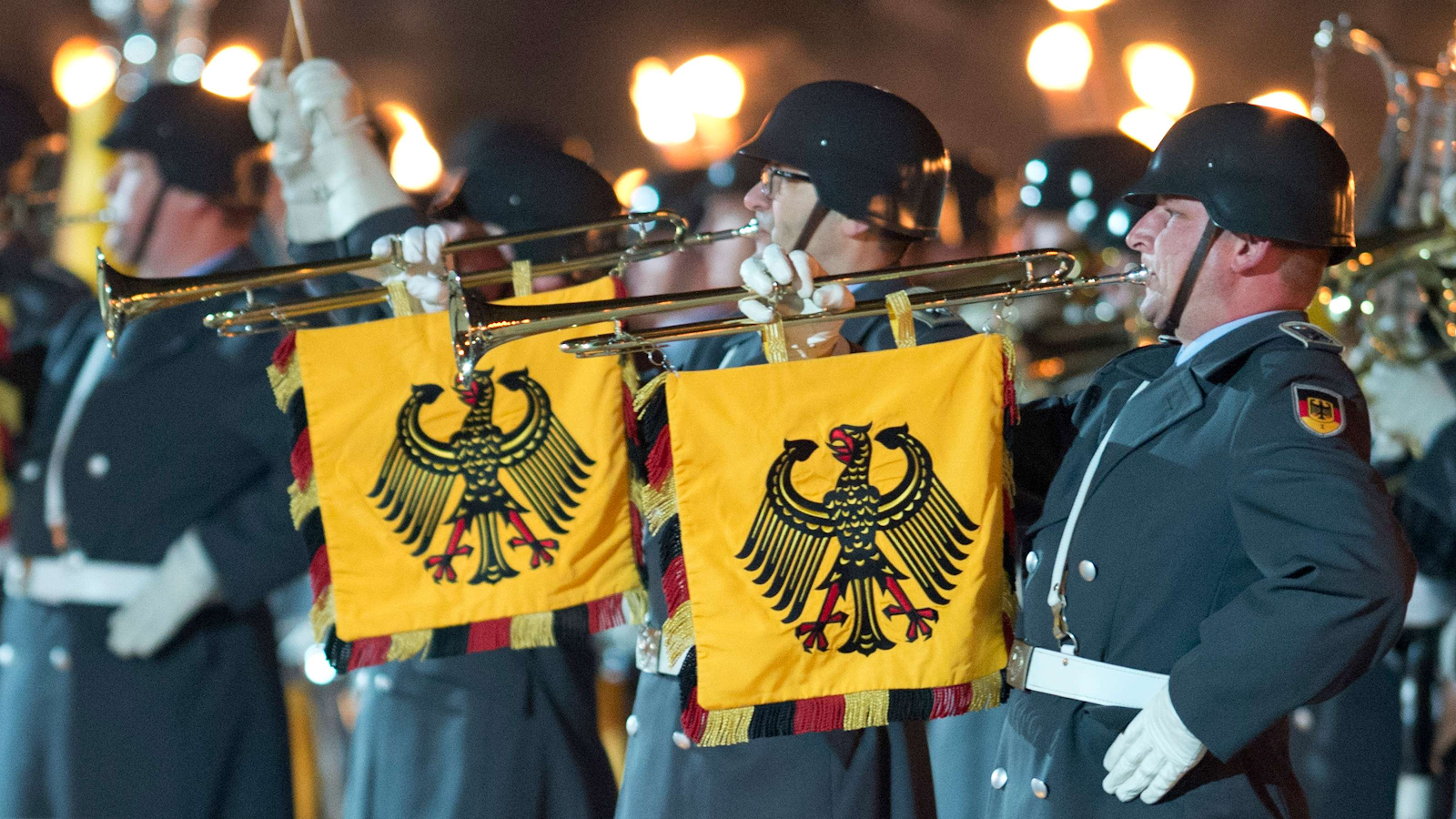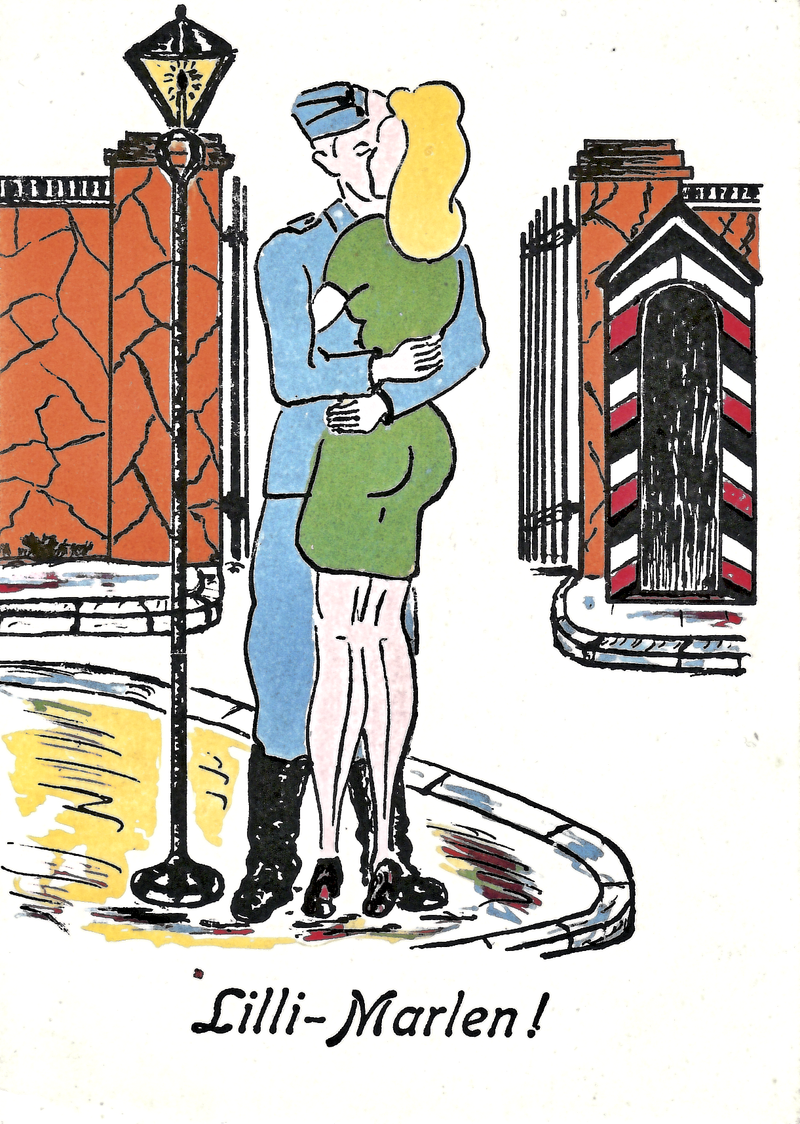I have
always found men in uniform particularly attractive, and military parades can
be an uplifting spectacle. I recently posted a link to the Großer Zapfenstreich
ceremony in honor of Angela Merkel’s departure as German chancellor. It is a beautiful
tribute if you like that sort of thing, which I do.
Yet as a
peace-loving person, I wonder why I’m so enthralled by military ceremonies. Isn’t
it really about glorifying war and making cannon fodder palatable? Why must we
dignify bloodshed? We rightly honor soldiers who have risked and sometimes sacrificed
life and limb protecting our country. My own father served in World War II in
the US Army in Burma, China and India. Fortunately, he was in the signal corps
and never had to shoot anyone, or get shot at himself. My dad never considered
himself a pacifist, and felt that the war he served in was a just one. Yet some
of my earliest memories are of him and my mom taking me and my brother to
anti-Vietnam War rallies in the 1960’s. As a small child, I understood that war
was bad and peace was good. I feared that my brother might be drafted someday;
he was 16 when the war ended. Having grown up in wartime, I assumed that war
was a normal condition that could go on indefinitely.
As
an author of World War II fiction, I have done a lot of research on that war, particularly
on the German army since one of the main characters in my first novel is a
German soldier. I’ve read numerous soldiers’ memoirs, as well as books about
the Third Reich, its victims and its perpetrators. I’ve also studied the German
language and am interested in German culture and history – an appeal spurred
both by my research and by my German-American ancestry.
My
interest in things German and the allure of things military logically intersect
in my enjoyment of pomp and ceremony as performed by the Musikkorps der Bundeswehr and in the
precision drills of the Wachbataillon beim Bundesministerium der Verteidigung. Perhaps my recent purchase of the “Unterm
Schellenbaum” CD is not entirely surprising.
For
those not as immersed in military history as I am, the “Schellenbaum” (also
known as the “Jingling Johnnie,” “Turkish crescent” or “Chapeau Chinois”) is a fascinating
musical instrument used by the armies of various nations for centuries. Today’s
German defense forces are one of the few in the world who retain its use. You
can read more about the instrument here.
The Wehrmacht had its own version of the Schellenbaum, with horsetail plumes in the black, white and red of the Nazi flag. Some people still get the Wehrmacht (the German forces during WWII) mixed up with the Bundeswehr, today’s German military, who employ the tricolors of the Federal Republic of Germany – black, red and gold – in their Schellenbaum and in other emblems.
Abroad, and even
inside Germany today, many are apprehensive of the spectacle of uniformed
soldiers, marching in lockstep to martial music and reverently displaying
national symbols. I wrote a blogpost many years ago in which I discussed the aversion some Germans
have to displays of national pride and patriotism. This is understandable
considering Germany’s not-too-distant history of belligerence and militarism.
Today’s Bundeswehr serves as a defense force, and not as an aggressor, if that can possibly be avoided. The participation of the German military in such conflicts as the Afghan war as a member of NATO’s security force, and as part of the UN mission in Mali are considered peacekeeping operations. Germany’s contingent in the Mali mission was the largest of any European nation, with a slightly larger contribution of soldiery than that of China, a country with 17 times the population of Germany. The US contingent was tiny, if measured on a per capita basis.
For your
edification and entertainment, here are a few YouTube videos about the
Schellenbaum, German military history, and the Bundeswehr. Even if you don’t
understand the German language, you may find them of interest:
How to assemble a bell tree (German Schellenbaum) - Navy Musikkorps Kiel and the jingling Johnny
https://www.youtube.com/watch?v=HHhjmtUvUwE
Schellenbaum -
Jingling Johnny - assembly, usage, disassembly
https://www.youtube.com/watch?v=HnqRh16nlnI
Protokollsoldat aus
Leidenschaft - Zugführerin (“female platoon
leader”) im Wachbataillon der Bundeswehr
https://www.youtube.com/watch?v=_aZeI2r5ZUY&t=114s
Mali returnees roll
call on December 15, 2023 in Wunstorf:
https://www.youtube.com/watch?app=desktop&v=RTRv-9ffqv4
German Empire -
Gangsta's Paradise:
https://www.youtube.com/watch?v=jJIUZSHRToE&t=283s
*****
This is
the first “dual-post” that I am simultaneously publishing on both of my blogs -- “Musings and discoveries” and “World War II…with a German accent.” You can view
my other blog here:
https://lisbethfeng.blogspot.com/














